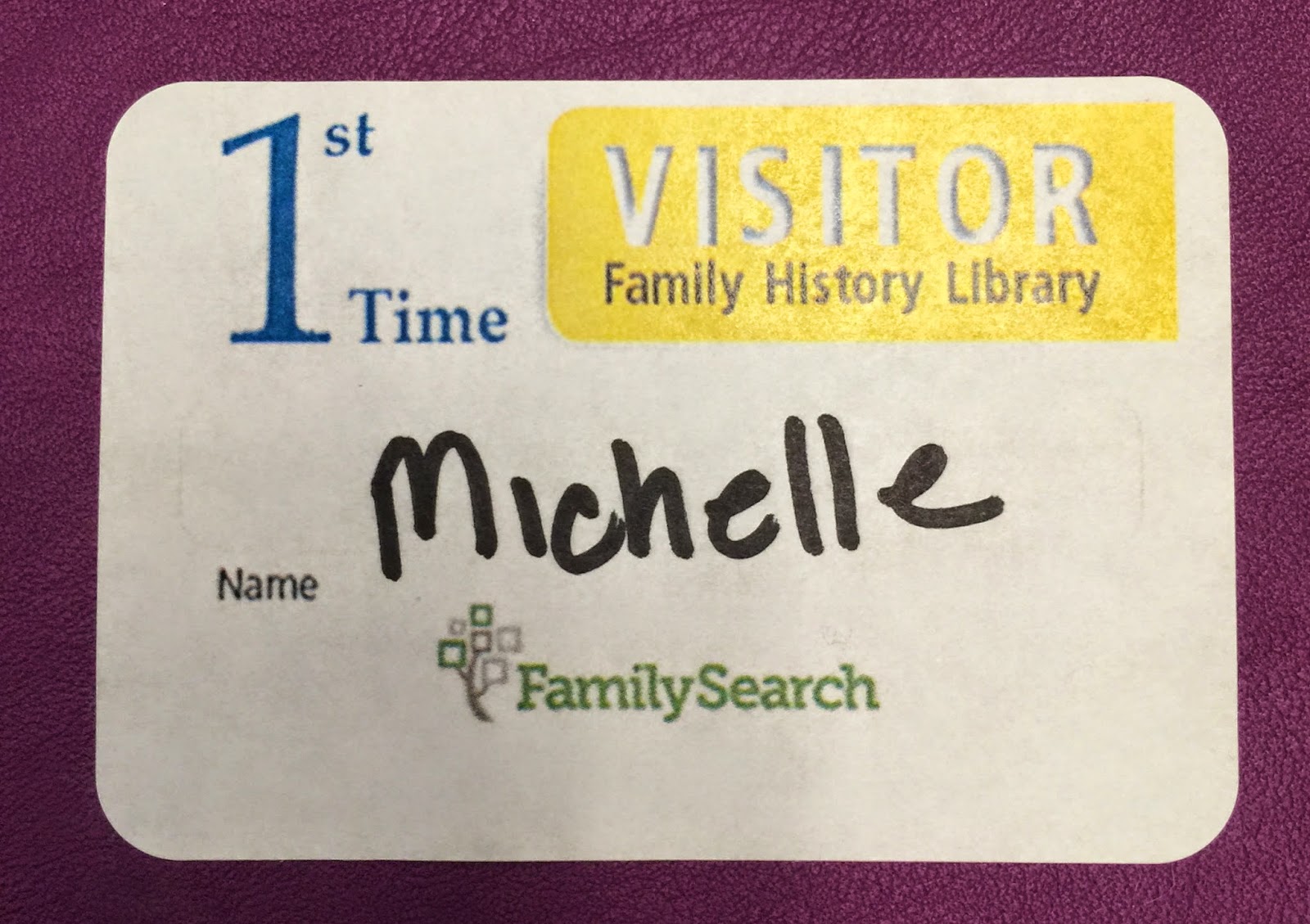When I went looking for someone to write about this week, I deliberately hit mothers side of the tree. For some reason - my problem children seem to hang out on my fathers branches, so lately, they have been getting more of my attention.
I started opening up the branches looking for a first - someone that I have not done a lot of research on who was "the first" of that line to enter the United States.
I started opening up the "Howe" line - and quickly ran into Julia Matilda Cruse. I know almost nothing about her, other than she married Amos Howe, who I have done a bit of research on already.
A few things occurred as I researched her -
- What an amazing woman!!!!
- I met a new cousin!!!!
- I realized I cannot possibly write her entire story. It would need to be a book of it's own. I will do my best to convey key points to illustrate her life as best I can, and provide source information for further investigation for those who may be interested.
Early Years
Julia Matilda Cruse was born in 17 July 1823 in Boxford, Berkshire, England. She had a happy childhood surrounded by parents and siblings. The family was prosperous, and the children were loved, and well cared for.
Religion was an important part of Julia's life - even as a young woman. Her family were members of the Church of England. In 1845, Julia had been living on the Isle of Wight with her sisters family due to some health issues. She returned that summer to find her mother distraught because one of her sisters had "disgraced" the family by joining the Mormon Church.
As the family became more familiar with the Mormon Church, several other members joined. Her sister, Mary, who had caused the tears shed by their mother, was baptized in 1845, followed by her mother in 1846. 1847 saw Julia's father and brother in law's baptisms. On October 11, 1848, Julia was baptized a member of the Mormon Church by elder John Legg. During this time Julie had been engaged to a young man she met on the Isle of Wight, but ended the engagement because the young man would not join the Mormon Church.
Julia Comes to America
In 1849, Julia, along with 2 of her sisters, Charlotte and Mary, and Mary's husband and 5 children ages between 3 and 15 decided to leave England and come to Utah. They left Liverpool on September 2nd, aboard a ship named The James Pennell.
The ship had been chartered by Orson C. Pratt. Arrangements had been made to make for as orderly and easy voyage as possible.
The boat contained 236 Mormons. Each was provided with the amount of provisions required by law, plus some additional items. Provisions were planned for 10 weeks, with a stipulation that any remaining provisions, should the voyage be shorter, to be "gifted" to the passenger to be used for their trip from New Orleans to St. Louis and then to Utah. It was amazing to me to see how organized groups were - below I've attached a viewer which shows the letter sent by Orson Pratt to Thomas Clark who was in charge of the expedition.
As voyages go, this one was pleasant. Here is a letter from Thomas H. Clark to Orson Pratt regarding the voyage:
"Ship James Pennell, New Orleans, October 22nd, 1849.
Dear Brother Pratt,--I feel it my duty to inform you of my safe arrival at New Orleans, and also a small sketch of our journey across the sea. Brother Barlow and Brother Alrin were chosen as my two counselors. I ordained Brother Alrin to the office of an elder, and then formed the company into ten divisions, with a president over each, to see that cleanliness and good order were kept, and also prayers every night and morning. We had preaching, and administered the sacrament every Sabbath, and also preaching Tuesdays and Thursdays. The officers also stood to their post, as men of God, so that all was peace and harmony during the time.
There has been but very little sickness on board. We lost three children, which were weaned just before they were brought on board; all the rest of the babes have done well. I think it would be well to inform the Saints not to wean their children just as they come; for if they do, they will likely to lose them before they get across.
Captain James Fullerton is, I think, as kind a captain as ever crossed the sea, and has been very kind to us; he has granted us every privilege which he possibly could, and made us many presents; his officers and crew were all very kind to us. The captain is a good man, and worthy to bring companies over. The ship is a good sailing vessel. We were just seven weeks crossing, and our passage was more like a pleasure trip than a sea voyage.
The Saints are all in good health and spirits, and most of those that are going to stay here, have obtained work already.
I have again proved you to be a man of God, for every word you said, when you blessed me, the night before we set sail, has been fulfilled to the very letter.
The Saints return you a vote of thanks for the good outfit you gave us, and for the quantity and quality of the same, which was good.
Brother McKenzie has met us, and has done well in helping us. He has taken a boat to sail tomorrow for St. Louis; and has also taken houses for the Saints that stay here. He has brought cheering news from the Bluffs, and also from the Valley. They have published the arrival of our vessel in the news, and consider it the most respectable and well behaved company that ever entered Orleans.
Please to give my kind respects to Sister Pratt, and all the family, and the Saints. May the God of heaven bless and preserve all his Saints, is the prayer of your brother in the gospel of Christ.
Thomas H. Clark, President.P.S. The ship "Berlin," arrived the same day, and has lost forty-three of the passengers with the cholera. "
St. Louis
Once the family arrived in New Orleans, Mary and her family headed directly to Utah, and Julia and Charlotte headed to St. Louis, where they stayed to earn money before heading to Utah. The sisters worked as dress makers. Both met their husbands while participating in the church choir. The exact date that Charlotte and Julia were married is unknown - it was 1850 or 1851 depending on where you look. Charlotte's first 2 children were born in St. Louis in 1851 and 1852, and in 1853 Charlotte and her family headed to Utah.
Julia married Amos Howe in 1850 or 1851. Amos had a reputation for exceptional design and planning in metal manufacture. By 1852 plans for a coast to coast railroad were underway and travel by railroad was becoming popular. Amos was asked to move to New York to help design and plan the manufacture of railway cars. In 1854 the family returned to St. Louis where Amos opened up a foundry shop with partner William H. Stone. (Note this is not the same William Edward Stone that Mary Cruse married in England and emigrated to the United States with).
Utah
By 1864, Julia wanted to be with her family in Utah, and the family prepared to head west. By then, the there were 3 children - Edgar, George and Charles. 2 other children had died as infants - James Eli, and Horace Howe. Julia was pregnant, and suffering from lung disease. Against her Dr.'s advice, the family decided to head west to Utah.
The Howes had the financial means to travel independently, but it was dangerous to travel alone. The family headed out with the Warren S. Snow Company on August 19, 1864. Along the way, the family became friends with Joseph A. Young, Brigham Young's oldest son who was returning from a mission in England and also travelling independently with the group.
On October 25, 1864 the family arrived in Salt Lake City, Utah. They stayed first with friends, and later moved into a house in 17th Ward, where eventually they would build a house of their own. Amos was born on November 7th - a mere 2 weeks after their arrival. Julia's lung issues had resolved during the trip west, never to return.
Julia's sister lived with her family in Ephraim Utah. Amos was asked to set up a merchantile in Ephraim and the two families became close. Charlotte's husband was killed in 1865 in the Black Hawk war. Amos and William were part of a group that were attacked by Indians, and while Amos managed to flee, William Stone and several other people in the group were killed. Amos and Julia took care of her sister's family - sending a check to Charlotte each month.
In December 1866, young Amos died. Charles Howe recalled his mothers sadness, and how she sat in her rocking chair and cried, until one day, Charles gave her a hug and said "Ma, please stop crying so much, you have me left to love and kiss.". Julia later called that young Charles' words are what prompted her to "get a hold of herself."

The family prospered in Utah and in 1873, Amos, along with his partner Nathan Davis, opened the Davis, Howe & Company Foundry. Around this time, Julia, ever mindful of her faith, decided that her husband needed to take a 2nd wife. Julia believed that the family would not be able to reach the highest level of salvation unless this was done. Julia worked with her sister, Charlotte to find a suitable candidate and sent Amos to meet Amy Mellor in 1876. On October 19th, 1876, Amos and Amy were married. Initially Amy lived in the same house with Julia and Amos, but moved into her own house nearby about 5 months later. Julia kept a journal during this time and expressed how hard it was for her, to have Amy so close, and her relief when Amy moved into a separate house nearby. Though Julia expressed her difficulty privately to her diary, she made a point of getting to know Amy and they became friends.
Julia was a devoted mother and wife. She was very active in the Mormon Church and was known for her "good works." She hosted orphans, widows and less fortunate people in her home, and taught English to new immigrants arriving in the Salt Lake Valley. She was a Sunday School Teacher, treasurer for The Relief Society, an assistant superintendent of the Juvenile Retrenchment Association, and president of the Mutual Improvement Association.
L.D. Adler wrote a tribute to Julia which appeared in a 1953 Relief Society Magazine:
"To Heaven's voice you have been true -
The youth of Zion pray for you
And love you for your sake,
You've taught them long and faithfully
To ever true and steadfast be -
And never God forsake."
In 1913, Mary Beth Talmadge wrote a tribute to Julia Cruse How - to commemorate her 90th birthday. The article was published in The Woman's Exponent, June 1913 edition.
Julia Cruse Howe died at the age of 92 on June 16, 1916 - just one day shy of her 93rd birthday. When her grandson, Ralph Howe, wrote to tell the family in England of her funeral he said "She looked beautiful and heavenly in her casket - much younger than her 93 years." 5 prominent members of the Mormon church and 175h ward spoke at her funeral - W. J. Beatie, George Albert Smith, Anthon H. Lund, Bishop F. S. Tingey, and Mrs. W. N. Williams. She was buried very close to the location where her family entered the Salt Lake Valley, with her husband and son in the Salt Lake City Cemetary.
Sources:
Special thanks to Sharon Turley who provided me with permission to use pictures she posted on search.org, a copy of the article from The Woman's Exponent, and other information. One of the best parts of working on family history - is meeting new cousins!!!
- Amos Howe, Pioneer Foundryman. By Margaret Cannon. Published in 2005. A copy can be found in the Family History Library in Salt Lake City, Utah, or online at: www.familysearch.org.
- https://archive.org/stream/dearbroihavechar00prat#page/n0/mode/1up
- Liverpool to New Orleans 2 Sep 1849 - 22 Oct 1849 | Mormon Migration
- Letter of Thomas H. Clark - October 22, 1849 | Mormon Migration
- Salt Lake Tribune, June 16, 1916, Salt Lake City Utah: Link
- The Woman's Exponent, June 1913, Salt Lake City, Utah
- www.ancestry.com
- www.familysearch.org
- https://history.lds.org/overlandtravels/trailExcerptMulti?lang=eng&pioneerId=43947&sourceId=1407

















































